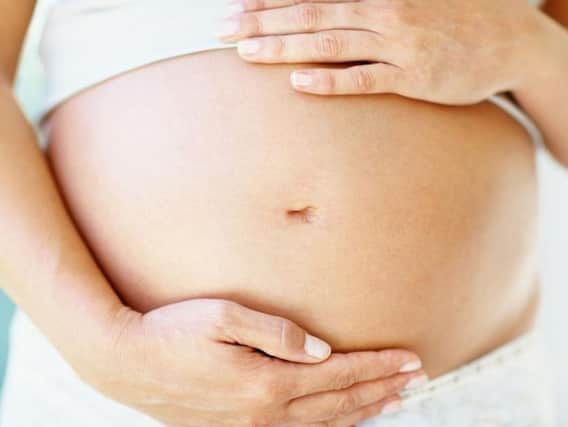Sleeping on side '˜cuts risk' during pregnancy


A large-scale study of pregnant women in Yorkshire and across the north found a 2.3 fold increase in the risk of late stillbirth among those who went to sleep on their backs in the third trimester.
The study also estimates there would be a 3.7 per cent decrease in stillbirth if all women went to sleep on their sides in the final months before childbirth.
Advertisement
Hide AdAdvertisement
Hide AdThe pregnancy support charity, Tommy’s, has launched the Sleep on Side campaign to raise awareness among women of the risks of going to sleep on their backs for any kind of sleep late in pregnancy.
The charity advises women to go to sleep on their sides, but not be concerned if they wake up on their back as the position at falling asleep is usually held longest during the night.
Should they wake in the middle of the night they should roll on to their sides before going back to sleep, the charity says.
Around one in every 224 pregnancies in the UK ends in stillbirth and the Midlands and North of England Stillbirth Study was the largest of its kind to examine the impact of maternal sleep position on the baby loss.
Advertisement
Hide AdAdvertisement
Hide AdDr Tomasina Stacey, a lecturer in maternal health at Leeds University, said: “The message that emerges from this research is that women can modify this particular risk factor themselves.
“When they go to bed, they should try to settle to sleep on their side and not their back – it doesn’t matter if it’s the left side or the right side.”
Professor Alexander Heazell, clinical director at the Tommy’s Stillbirth Research Centre at St Mary’s Hospital, Manchester, who led the study, said: “Around 11 babies are stillborn every day in the UK. Stillbirth is devastating, with long-lasting effects on bereaved parents.
“Parents want to know why their baby has died, whether it might happen again if they try for another baby and what they can do to avoid further stillbirth.”
Advertisement
Hide AdAdvertisement
Hide AdThe effect of sleep position on stillbirth is yet to be established, although it is thought the weight of the baby and uterus can impair blood flow to the baby, or the sleep position can affect breathing.
Louise Silverton, of the Royal College of Midwives, said: “It is a simple change that can make a difference and it will be important to ensure that this is communicated effectively to women.”